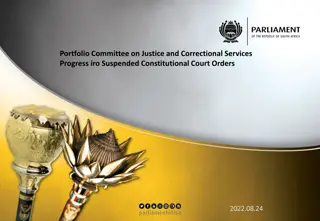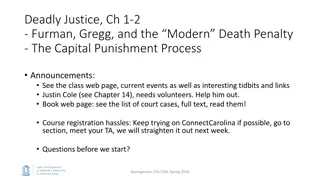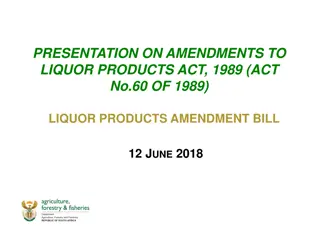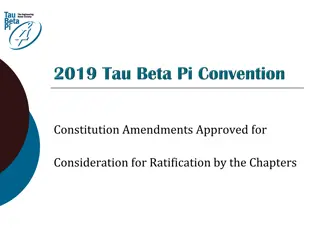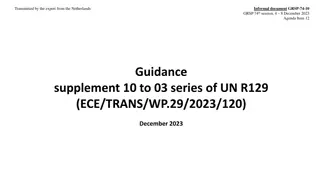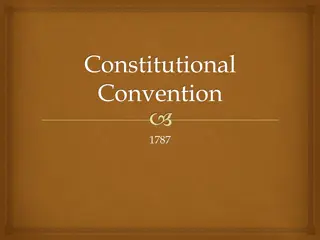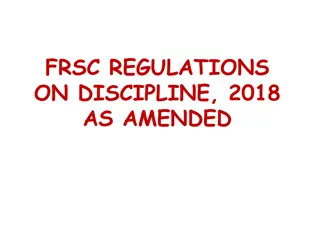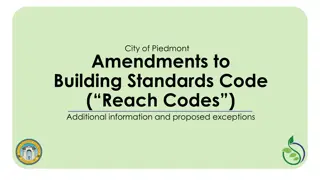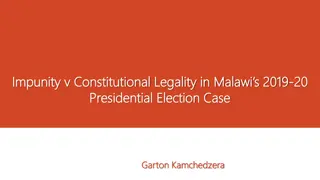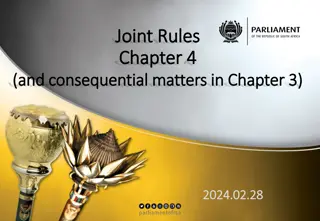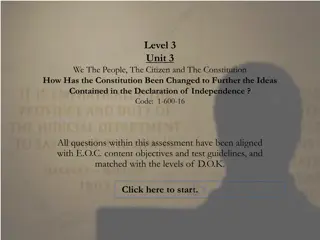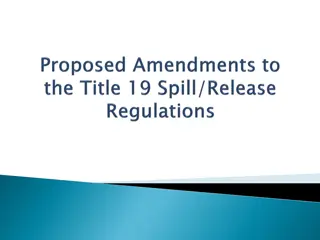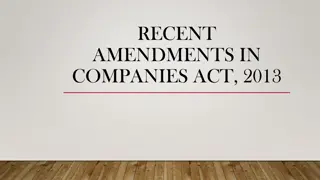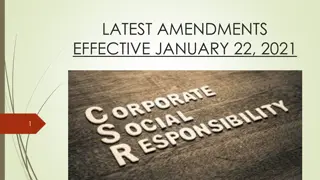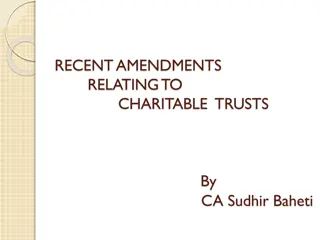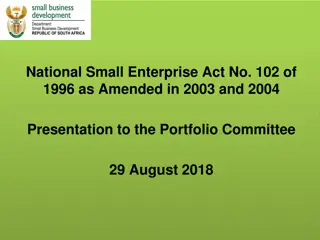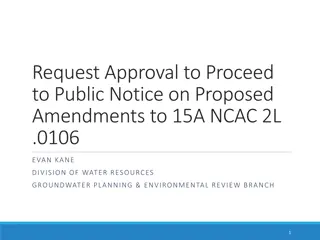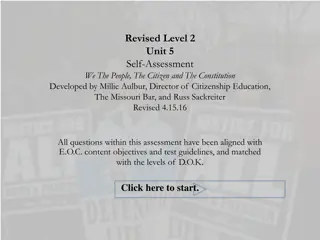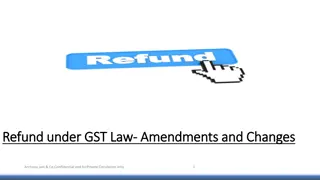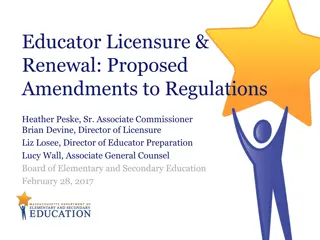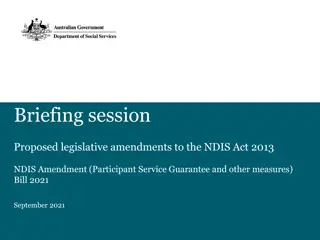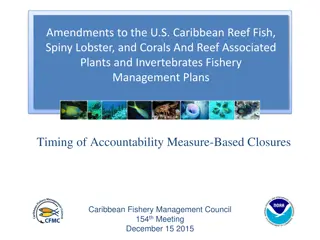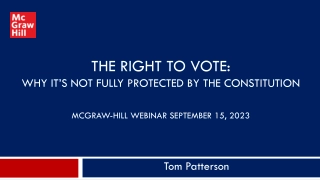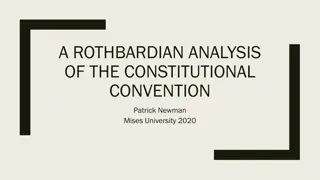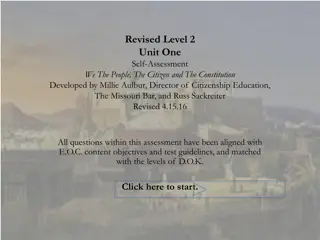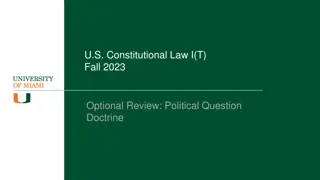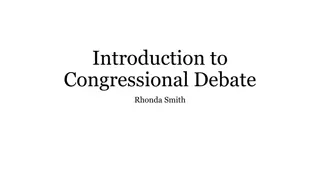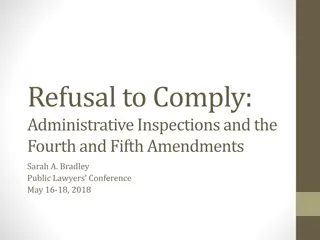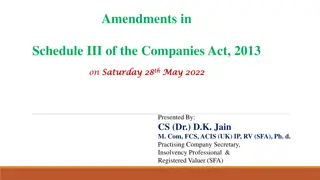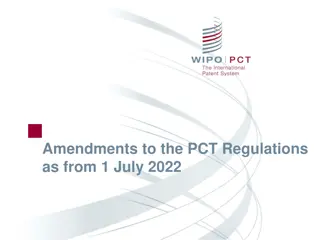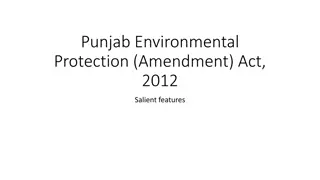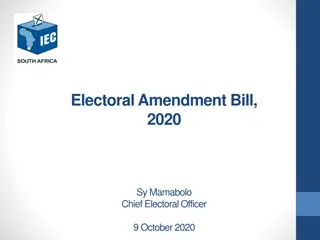Key Constitutional Amendments Explained
Explore the 4th, 5th, 6th Amendments, and the Due Process Clause of the XIV Amendment of the United States Constitution focusing on rights such as protection against unreasonable searches, double jeopardy, right to a fair trial, and due process of law.
Download Presentation

Please find below an Image/Link to download the presentation.
The content on the website is provided AS IS for your information and personal use only. It may not be sold, licensed, or shared on other websites without obtaining consent from the author. Download presentation by click this link. If you encounter any issues during the download, it is possible that the publisher has removed the file from their server.
E N D
Presentation Transcript
Todays Routine Self Assessment Guided notes Small Groups Case Analysis and Discussion Whole Class Case Analysis Follow up Reflection
4thAmendment The right of the people to be secure in their persons, houses, papers, and effects, against unreasonable searches and seizures, shall not be violated, and no Warrants shall issue, but upon probable cause, supported by Oath or affirmation, and particularly describing the place to be searched, and the persons or things to be seized.
5thAmendment No person shall be held to answer for a capital, or otherwise infamous crime, unless on a presentment or indictment of a Grand Jury, except in cases arising in the land or naval forces, or in the Militia, when in actual service in time of War or public danger; nor shall any person be subject for the same offence to be twice put in jeopardy of life or limb; nor shall be compelled in any criminal case to be a witness against himself, nor be deprived of life, liberty, or property, without due process of law; nor shall private property be taken for public use, without just compensation.
6thAmendment In all criminal prosecutions, the accused shall enjoy the right to a speedy and public trial, by an impartial jury of the State and district wherein the crime shall have been committed, which district shall have been previously ascertained by law, and to be informed of the nature and cause of the accusation; to be confronted with the witnesses against him; to have compulsory process for obtaining witnesses in his favor, and to have the Assistance of Counsel for his defence.
Due Process Clause Amendment XIV No State shall make or enforce any law which shall abridge the privileges or immunities of citizens of the United States; nor shall any State deprive any person of life, liberty, or property, without due process of law; nor deny to any person within its jurisdiction the equal protection of the laws.
Steps In Due Process Booking Reasonable Suspicion Probable Cause Arrest Finger print Photo Possible DNA Arraignment Guilty Not Guilty No Contest
Which Court Do I Go To? Magistrate Circuit Court 30 days up to 1 year 1 year or more Jail Prison Misdemeanors Felonies Three classes Six classes
SC Court Statistics Magistrates Court Circuit Court Total Cases Filed 938,060 Total Cases filed 232,741 Total Cases Disposed 229,311 Total Cases Disposed 889,940 46 Circuit Court Judges 310 Magistrates Do the Math: 938,060 / 310 = 3,026 cases per Magistrate Do the Math: 232,741/46 = 5,060 cases per Judge
Court of Appeals Review By Certiorari Reverse lower court decision Cases filed: 1,664 Cases Disposed: 1,632 Do the Math: 1,632/3 = 544
South Carolina Supreme Court 5 Judges 1 Chief Justice 4 Associate Justices Matters Filed: 1,427 Matters Disposed: 1,566
South Carolina Supreme Court Justices
Small Groups Case Analysis and Discussion Teacher Handout Groups of three or four
Whole Class Supreme Court Analysis Mappv. Ohio


